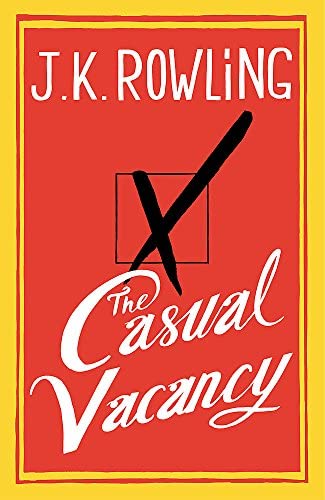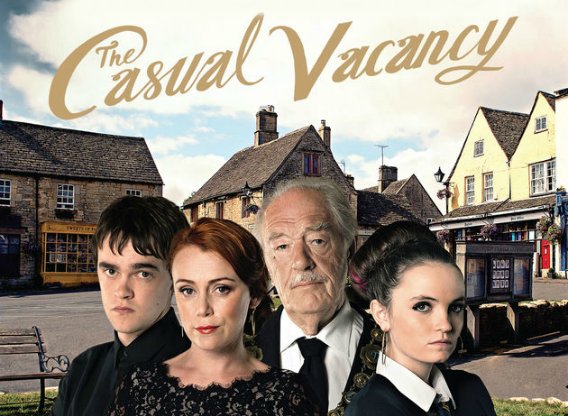The Casual Vacancy, J.K.Rowling, UK, 2012
 Pagford is a small rural village in west England where the inhabitants take pleasure in not being part of the nearby (much larger) town of Yarvil while being endlessly thankful that they are not like the residents of the Fields. The Fields, part of Pagford and halfway between Pagford and Yarvil, had once been included in a large estate, boasting parkland and farmland, but in the mid-twentieth century, a new owner sold a large portion of the estate – scrubby, unusable land – to Yarvil for cheap housing – hence the name, the Fields.
Pagford is a small rural village in west England where the inhabitants take pleasure in not being part of the nearby (much larger) town of Yarvil while being endlessly thankful that they are not like the residents of the Fields. The Fields, part of Pagford and halfway between Pagford and Yarvil, had once been included in a large estate, boasting parkland and farmland, but in the mid-twentieth century, a new owner sold a large portion of the estate – scrubby, unusable land – to Yarvil for cheap housing – hence the name, the Fields.
Although Yarvil is supposed to bear responsibility for the maintenance of the estate, Yarvil Council feels that Pagford should also be involved, with the result that the Fields has become a place where graffiti flourishes, services are unreliable and no one really cares. It has become home to social outcasts and people who have no other choice. Many on the Pagford Parish Council want the Fields separated from Pagford and handed over to Yarvil. But Barry Fairweather has grown up in the Fields, and is fighting to have the Fields remain with Pagford; then, without warning, he dies. With his death, a casual vacancy is created on the Parish Council.

A story incorporating self-aggrandizement, insincerity, domestic violence, loneliness, biased perceptions and a willingness to do good, The Casual Vacancy brings into play a daunting number of characters without ever complicating the reader’s grasp on the story. The characters and the situations are true to life; there is a lot to like and dislike; there is much to ponder over.
Rowling shows very clearly that a person’s worth has nothing to do with where he or she lives – the self-righteous committee member can be less genuine in his actions than the uneducated teenager living a hand-to-mouth existence in abject poverty. While applauding some of the characters, even possibly identifying with them, you will doubtlessly dislike some of the others, but at all times you will appreciate the strings of logic tying the many components of the story together. This is not always a happy read, but it is definitely worth reading.
